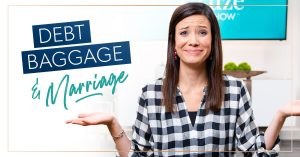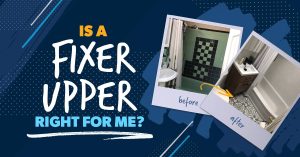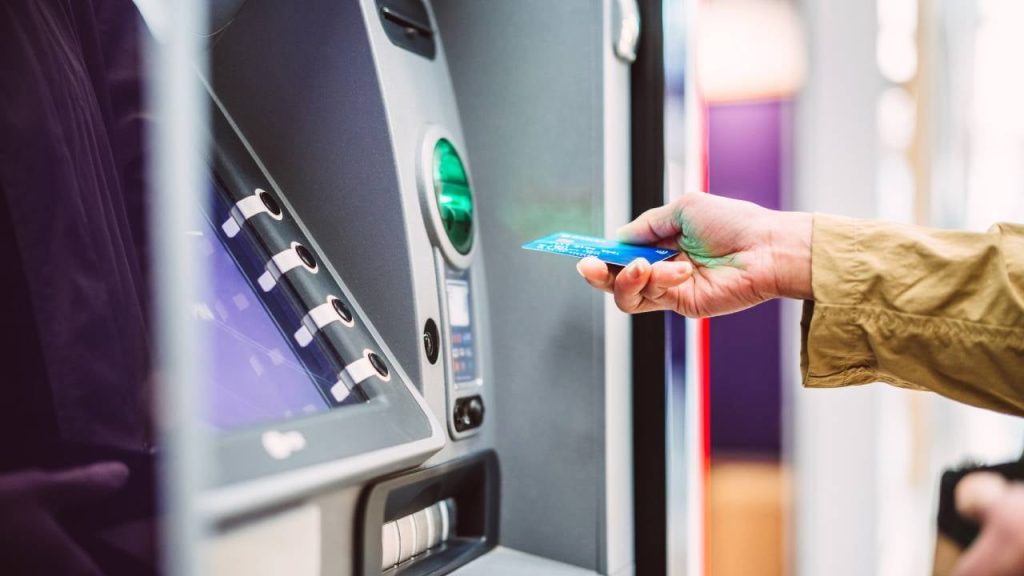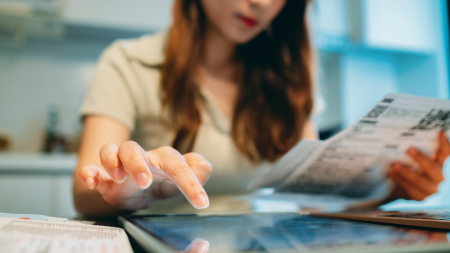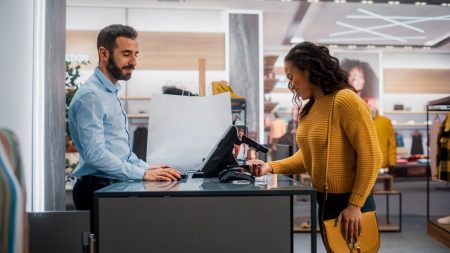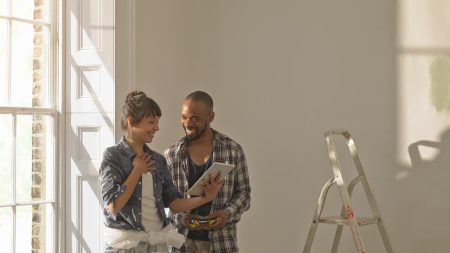Key takeaways
- The national unbanked rate is at 4.2 percent, which equals 5.6 million households according to the 2023 FDIC National Survey of Unbanked and Underbanked Households. The previous lowest rate was 4.5 percent in 2021.
- The most common reason people are unbanked is because they don’t feel they have enough money to meet the bank’s minimum balance requirements.
- Since 2019, mobile banking has been the most popular way for people to access their bank account.
A record low number of households in the U.S. are unbanked, according to the 2023 Federal Deposit Insurance Corp. (FDIC) National Survey of Unbanked and Underbanked Households released Nov. 12, 2024. A household in which no members have a bank account, is how unbanked is defined by the FDIC.
This number has steadily decreased – from its highest point in 2011 (8.2 percent) to 4.2 percent in the latest survey. The FDIC survey found that 5.6 million households are unbanked and 128 million households were banked last year. This is the eighth biennial survey, which began in 2009.
Here’s a look at why people are unbanked and reasons to consider banking at an FDIC-insured bank:
Unbanked households are at a record low, but higher for some groups
Some groups were more likely to be unbanked, according to the FDIC survey:
- 12.3 percent of single-parent households are unbanked, which is significantly higher than the unbanked rate for married households with one or more children (2.3 percent).
- 11.2 percent of households with a working age person with a disability were unbanked, compared to the unbanked rate among working-age households without a disability (3.7 percent).
- The survey found race and ethnicity affected unbanked rates. Of households making between $50,000 and $75,000, 4.5 percent of Hispanic households were unbanked, 3.5 percent of Black households were unbanked and 0.8 percent of White households were unbanked.
Reasons for not having a bank account
The following are the primary reasons why people remain unbanked, according to the FDIC’s survey and reasons to consider an FDIC-insured bank:
42 percent of unbanked households don’t have enough money to meet minimum balance requirements
This was the main reason respondents cited as a cause of being unbanked, with 42 percent giving this reason. More than 23 percent surveyed said this was the main reason for not having a bank account.
One-third (33 percent) of unbanked households in 2023 cited a reason related to fees or a minimum balance as the main reason for not having an account at a bank. These included bank fees being too high and unpredictable, along with not having enough for a minimum balance.
What you should know: Almost half of non-interest checking accounts (47 percent) don’t charge a service fee. And another 46 percent waive the fee if you have regular incoming direct deposits, according to Bankrate’s 2024 Checking Account and ATM Fee Survey. Many savings accounts require no minimum balance to open an account, and there are even certificates of deposit (CDs) that have no minimum deposit.
16 percent of unbanked households don’t trust banks
Bad press, unexpected fees and poor customer service are some reasons that J.D. Power found that people don’t trust banks. The bad press could be in the form of fines related to fake accounts being opened or overdraft fees.
Bank deposits that are within FDIC limits are protected by the full faith and credit of the U.S. government. Perhaps starting with a small account with no fees can help build trust. For those banking with a credit union, if it is a National Credit Union Administration (NCUA) member, your money is also protected within specific guidelines.
Other reasons according to the FDIC survey:
Bank account fees are too high
Look for a bank that doesn’t charge fees or has easy requirements to waive fees. Also, check out the bank’s website for a list of fees so you can be completely aware of what fees are charged. Fees also might be even higher than check-cashing fees or other fees you might incur from not having a bank account.
Bank account fees are too unpredictable
Bank fees can change, but usually they’re disclosed to you when you open an account. Banking with a bank that has reduced or eliminated overdraft fees can also help. You also might be able to open an account that will decline debits that would overdraft your account. You can also avoid overdraft fees by carefully keeping track of your banking transactions. Also, be sure to have your accurate contact information on file with the bank, so if they do inform you of a fee change, you will be notified.
Bank locations are inconvenient
An online-only bank that’s directly insured through the FDIC gives you the same federal protection in case of a bank failure as the FDIC-insured bank in your neighborhood. You should be able to find an online bank that has 24/7 customer service hours.
Banked households primarily use mobile banking to access their accounts
It’s probably not a surprise that mobile banking (48.3 percent) and online banking (19.8 percent) are the primary ways that people with bank accounts access their accounts, according to the FDIC survey.
Transactions with bank tellers decreased from 21 percent in 2019 to 14.9 percent in 2021. It increased slightly to 15.1 percent in the most recent FDIC survey.
Underbanked households use cryptocurrency more than fully banked households. A household is underbanked if the people in it have a checking or savings account at a bank or credit union, but they also use nonbank financial services (NBFSs).
The following are NBFSs, according to the FDIC survey:
- nonbank money orders
- check cashing
- international remittances
- rent-to-own services
- payday loans
- pawn shop loans
- auto title loans
- tax refund anticipation loans
Those who are underbanked are more likely to use cryptocurrency than both fully banked and unbanked households. The majority of fully banked and underbanked households use cryptocurrency as an investment, according to the FDIC survey.
Unbanked people are less likely to have credit products
More than three quarters (78 percent) of unbanked households don’t have any mainstream credit compared with 13 percent of banked households. Mainstream credit are products that are reported to the nationwide credit agencies, according to the FDIC.
Why you should have a bank account
Keep your money safe
A fire, flood or other natural disaster where you live would be devastating. And it would be a double whammy if you lost your home, your possessions and your cash if you kept it at your home and not at a bank. The same could be said if your home was burglarized. That’s why your money has more protections at a federally insured bank. (Note: The federal deposit insurance protects you in case of a bank failure, not from theft. Regulation E, allows you to file a dispute if a fraudulent charge is made with a debit card, for instance. Money at your home doesn’t have this option.)
Pay bills easily
Paying bills electronically generally requires a bank account. So this can make paying bills easier than paying with cash. In some cases, automatically paying your bills might result in a discount, allowing you to save money.
Save on fees
Cashing your check at a check cashing business can be expensive. Most people can find a fee-free checking account to receive their direct deposit. And if you don’t receive direct deposit, you should be able to deposit your check without paying a fee at a bank.
Build your financial reputation
This is important because the FDIC study shows banked households are much more likely to have mainstream credit. More than three quarters (78 percent) of unbanked households don’t have mainstream credit, compared to 12.2 percent of fully banked households not having mainstream credit, according to the 2023 FDIC survey.
Having mainstream credit can lead to becoming a homeowner or utilizing credit. The FDIC’s survey shows that fully banked households are much more likely to have credit products since 81 percent of fully banked households have a traditional credit card and only 10 percent of unbanked households have one.
Get more services
Whether it’s a credit card, debit card, a checking account or access to ATMs, banks offer many services. Wire transfers, payment methods such as Zelle, money orders and official bank checks are all services offered at most financial institutions.
Plan for the future
Banking can help you with your future financial goals. This could include saving money in an emergency fund or by establishing credit at a financial institution. You could either split a portion of your direct deposit to go into your high-yield savings account instead of your checking account – to automate the saving process – or you could set up an automatic transfer from your checking account into your savings account. Automating your savings is a lot more difficult to achieve without a bank account.
Save time and bank anywhere
Mobile apps and online banking make it easier than ever to bank from almost anywhere without setting foot in a bank. Some banks even have early direct deposit. This can help you get paid up to two days earlier, which could help you if you need funds a little before payday in order to avoid overdraft fees or late fees.
Protect your money from error or fraud
Purchasing an item with cash doesn’t give you the protections that buying something with a credit card or debit card does. A credit card generally has stronger protections.
Earn interest on your money
Money in your wallet, at home or under your mattress doesn’t grow. And by not growing, the money doesn’t keep up with inflation. Top savings accounts are actually outpacing inflation. But this trend is not likely to last forever. That’s why it’s important to take advantage of rate environments like the current one.
It could make budgeting easier
It’s likely easier to track where your money goes with a bank statement and by seeing your transactions in a bank app or on the bank website. Cash transactions without obtaining and recording receipts could make it difficult to see where your money is going.
Bottom line
Bankrate’s found that there are a number of ways people can have a checking account without having to maintain a minimum balance or pay fees. Getting awareness about these free checking accounts could help more people use the banking system. Using the banking system can save people money and help them achieve their financial goals. For instance, being banked means a household is more likely to have credit and thus might be more likely to eventually successfully buy a house with a mortgage.
Read the full article here
